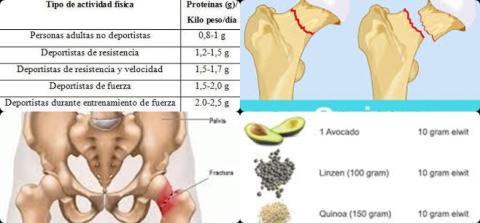
Objectives:
Do older adults benefit from high protein intake (>0.8 g/kg body weight/day)?
Study design:
This review article included 12 cohort studies and 1 RCT.
Studies had an intervention duration of at least 6 months.
Results and conclusions:
The investigators found meta-analysis of the cohort studies showed that high vs low protein intake resulted in a statistically significant decrease of 11% for hip fractures [pooled HR = 0.89, 95% CI = 0.84 to 0.94, p 0.001, I2 = 0.0%, p = 0.614].
Sensitivity analyses showed that there was no single study affecting the overall estimate considerably.
The investigators concluded there is an association between a dietary protein intake above the current RDA of 0.8 g/kg body weight/day and a reduced hip fracture risk in older adults. In comparison with younger adults, the body of evidence from the included studies is not strong enough to increase the protein recommendation for older adults with respect to bone health.
Original title:
High Versus low Dietary Protein Intake and Bone Health in Older Adults: a Systematic Review and Meta-Analysis by Groenendijk I, den Boeft L , [...], de Groot LCPGM.
Link:
https://www.ncbi.nlm.nih.gov/pmc/articles/PMC6704341/
Additional information of El Mondo:
Find more information/studies on protein and elderly.
A protein intake higher than 0.8 g/kg body weight/day corresponds to a diet with a minimum of 11 En% protein. The easiest way to follow a diet with at least 11 En% protein is to choose only products that contain at least 11 En% protein. These products from the supermarket contain at least 11% En% protein.